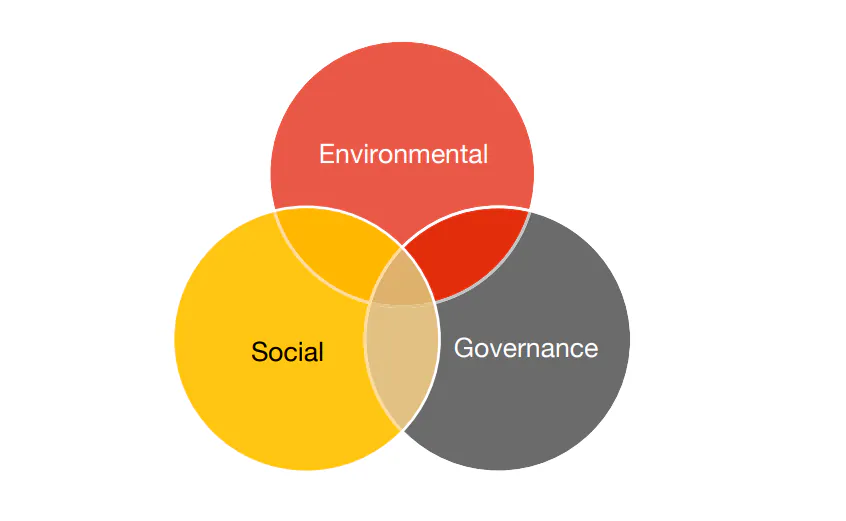Environmental, social, and governance (ESG) factors are increasingly influencing decision-making processes within the banking industry. As sustainability becomes a central concern for investors, customers, and regulators, the demand for transparent, accurate, and timely ESG reporting is growing rapidly. However, traditional methods of ESG reporting often struggle to keep up with the complexity, volume, and speed of information required in today’s fast-paced financial environment.
Fortunately, technology is playing a pivotal role in transforming ESG reporting. From advanced data analytics to artificial intelligence (AI) and blockchain, technological innovations are helping banks improve the accuracy, efficiency, and transparency of their ESG disclosures. This shift is not only enabling better decision-making but also creating new career opportunities for professionals in sustainable finance and ESG reporting.
In this blog, we’ll explore how technology is revolutionizing ESG reporting in the banking industry, the key tools being used, and the implications for both banks and professionals looking to build careers in this rapidly evolving field.
The Challenge of Traditional ESG Reporting
Traditional ESG reporting in the banking sector often relies on manual data collection, inconsistent reporting standards, and limited access to real-time information. These methods can lead to delays, inaccuracies, and a lack of transparency, which ultimately undermines the reliability of ESG disclosures. Additionally, the growing complexity of ESG factors—ranging from environmental risks like climate change to social issues such as labor practices and diversity—further complicates the reporting process.
Regulatory pressure for better and more standardized ESG reporting has also increased, particularly in regions like the European Union, where laws such as the Sustainable Finance Disclosure Regulation (SFDR) demand detailed disclosures on how financial institutions are addressing ESG risks. As such, banks must move beyond traditional reporting models to meet both regulatory requirements and the expectations of stakeholders, including investors, clients, and the public.
How Technology is Transforming ESG Reporting
The integration of advanced technologies is enabling banks to collect, analyze, and report ESG data with greater accuracy and efficiency. Here are some of the key technologies revolutionizing ESG reporting in banking:
-
Data Analytics and Big Data
One of the biggest challenges in ESG reporting is the vast amount of data that must be collected from a variety of sources. Data analytics tools are helping banks sift through this data, identify key ESG indicators, and generate meaningful insights. Big data platforms allow banks to aggregate data from diverse sources, such as regulatory filings, company reports, news feeds, and social media, to create a comprehensive view of their ESG performance.
With the help of data analytics, banks can track ESG performance in real time, enabling them to respond quickly to changes in their portfolio or external factors like environmental disasters, market shifts, or social movements. This data-driven approach not only enhances the accuracy of ESG reporting but also provides a clearer picture of the bank’s overall sustainability efforts.
-
Artificial Intelligence (AI) and Machine Learning
Artificial intelligence and machine learning are increasingly being used to automate ESG data analysis and reporting. These technologies can process large volumes of unstructured data, such as news articles, regulatory filings, and social media posts, to identify trends and assess ESG risks. By leveraging AI, banks can automate the extraction of key ESG metrics from financial statements and other documents, significantly reducing manual effort and the potential for human error.
Machine learning algorithms also help banks predict future ESG trends, assess potential risks, and optimize their sustainability strategies. For instance, AI tools can analyze historical data to forecast the environmental impact of certain investments or predict how regulatory changes may affect a bank’s ESG compliance. As AI technologies continue to advance, they will become even more integral to ESG reporting, helping banks make more informed and data-driven decisions.
-
Blockchain for Transparency and Security
Blockchain technology is revolutionizing ESG reporting by providing a secure and transparent way to track ESG data throughout the supply chain. In an industry where trust and accountability are paramount, blockchain offers an immutable ledger that records ESG-related transactions in a transparent, verifiable manner. This can be particularly useful for tracking environmental performance, such as carbon emissions, waste management, and renewable energy use, as well as social metrics like labor practices and human rights compliance.
By using blockchain, banks can ensure that the data they report is accurate and tamper-proof, which increases trust among investors, regulators, and other stakeholders. Furthermore, blockchain allows for real-time ESG reporting, enabling banks to meet regulatory requirements and provide stakeholders with up-to-date information.
-
Cloud Computing
Cloud computing plays a significant role in enabling banks to streamline their ESG reporting processes. Cloud-based platforms allow for the centralized storage and management of ESG data, making it easier for banks to access, update, and share information with stakeholders. Cloud-based systems also support collaboration across different departments and geographical locations, ensuring that ESG data is consistently reported across the organization.
Cloud platforms are particularly beneficial for banks looking to scale their ESG reporting efforts. With the ability to handle large amounts of data and provide access to powerful analytics tools, cloud computing enables banks to enhance their reporting capabilities without the need for significant infrastructure investments.
The Benefits of Technology-Driven ESG Reporting
The adoption of technology in ESG reporting provides several key benefits to banks, investors, and other stakeholders:
-
Improved Accuracy and Efficiency: Automation tools, AI, and data analytics significantly reduce the likelihood of errors in ESG reporting, ensuring more accurate and reliable disclosures. This also speeds up the reporting process, allowing banks to respond quickly to regulatory deadlines and changing market conditions.
-
Better Decision-Making: With more accurate and comprehensive ESG data, banks can make better-informed decisions regarding investments, risk management, and sustainability strategies. Data-driven insights help banks identify emerging ESG risks and opportunities, allowing them to adjust their strategies accordingly.
-
Enhanced Transparency and Trust: Technology solutions like blockchain provide an immutable record of ESG data, increasing transparency and building trust with stakeholders. By adopting these technologies, banks can demonstrate their commitment to sustainability and improve their reputation among investors and customers.
-
Regulatory Compliance: With the growing regulatory emphasis on ESG disclosures, technology helps banks comply with evolving standards by automating data collection, analysis, and reporting. This ensures that banks meet regulatory requirements in a timely and efficient manner.
Conclusion
Technology is rapidly transforming ESG reporting in the banking industry, enabling banks to enhance the accuracy, transparency, and efficiency of their disclosures. By leveraging tools such as data analytics, AI, blockchain, and cloud computing, financial institutions can stay ahead of regulatory demands, improve decision-making, and build trust with stakeholders. As ESG factors continue to shape the future of finance, banks that embrace these technological advancements will be better positioned to lead the way in sustainable finance and create long-term value for their clients, investors, and communities.
For professionals interested in sustainable finance and ESG reporting, the intersection of technology and sustainability offers exciting career opportunities in a rapidly evolving field. Whether you are an analyst, data scientist, or ESG specialist, the growing importance of technology in ESG reporting presents a wealth of potential for career growth and impact in the financial sector.






